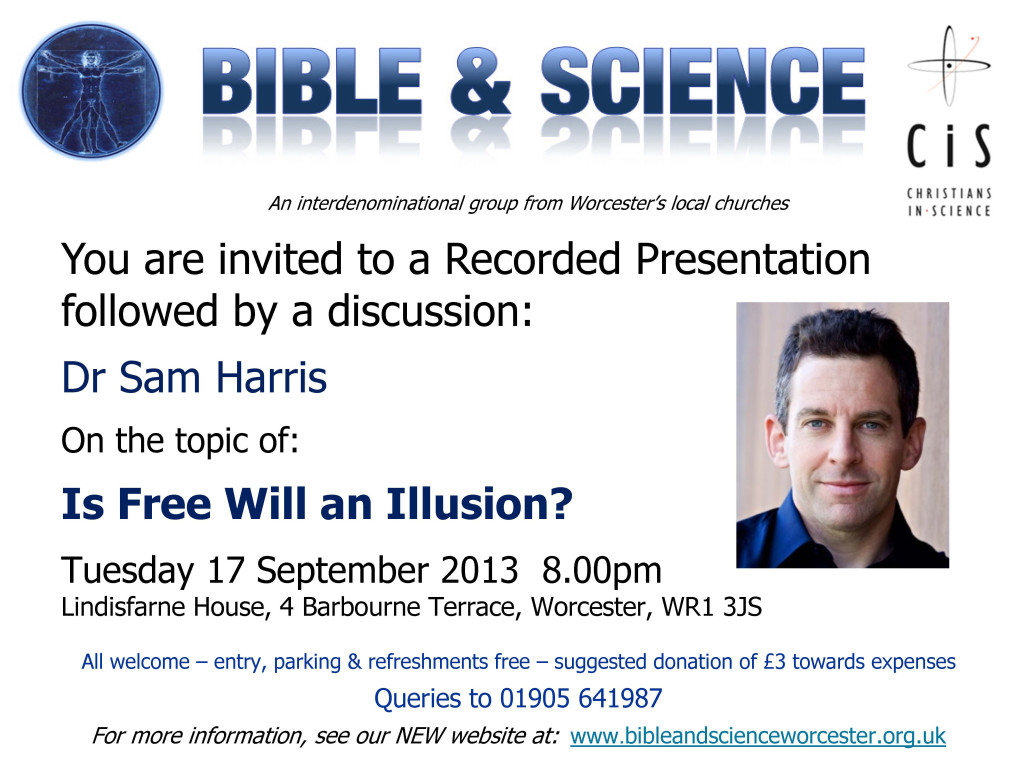Can We Truly Exercise Free Will?
Dr Sam Harris Argues for ‘Free Will Being An Illusion’
Dr Sam Harris is leading proponent of the ‘Free Will Is An illusion’ argument. Dr Harris is a neuroscientist and science journalist, Dr Sam Harris. On the 17th September we will watch a presentation in which he argues that organised religions lose their point if we believe we are not responsible for the way we behave.
Prof Geoff Pritchard – A Christian Perspective on Free Will
What Do You Think?
Dr Sam Harris Biopic
Sam Harris is the author of the New York Times bestsellers, The End of Faith, Letter to a Christian Nation, The Moral Landscape, and Free Will. His writing has been published in more than 15 languages. He and his work have been discussed in The New York Times, Time, Scientific American, Nature, Newsweek, Rolling Stone, and many other journals. His writing has appeared in The New York Times, The Los Angeles Times, The Economist, Newsweek, The Times (London), The Boston Globe, The Atlantic, The Annals of Neurology, and elsewhere.
He is a cofounder and the CEO of Project Reason, a nonprofit foundation devoted to spreading scientific knowledge and secular values in society. He received a degree in philosophy from Stanford University and a Ph.D. in neuroscience from UCLA.

